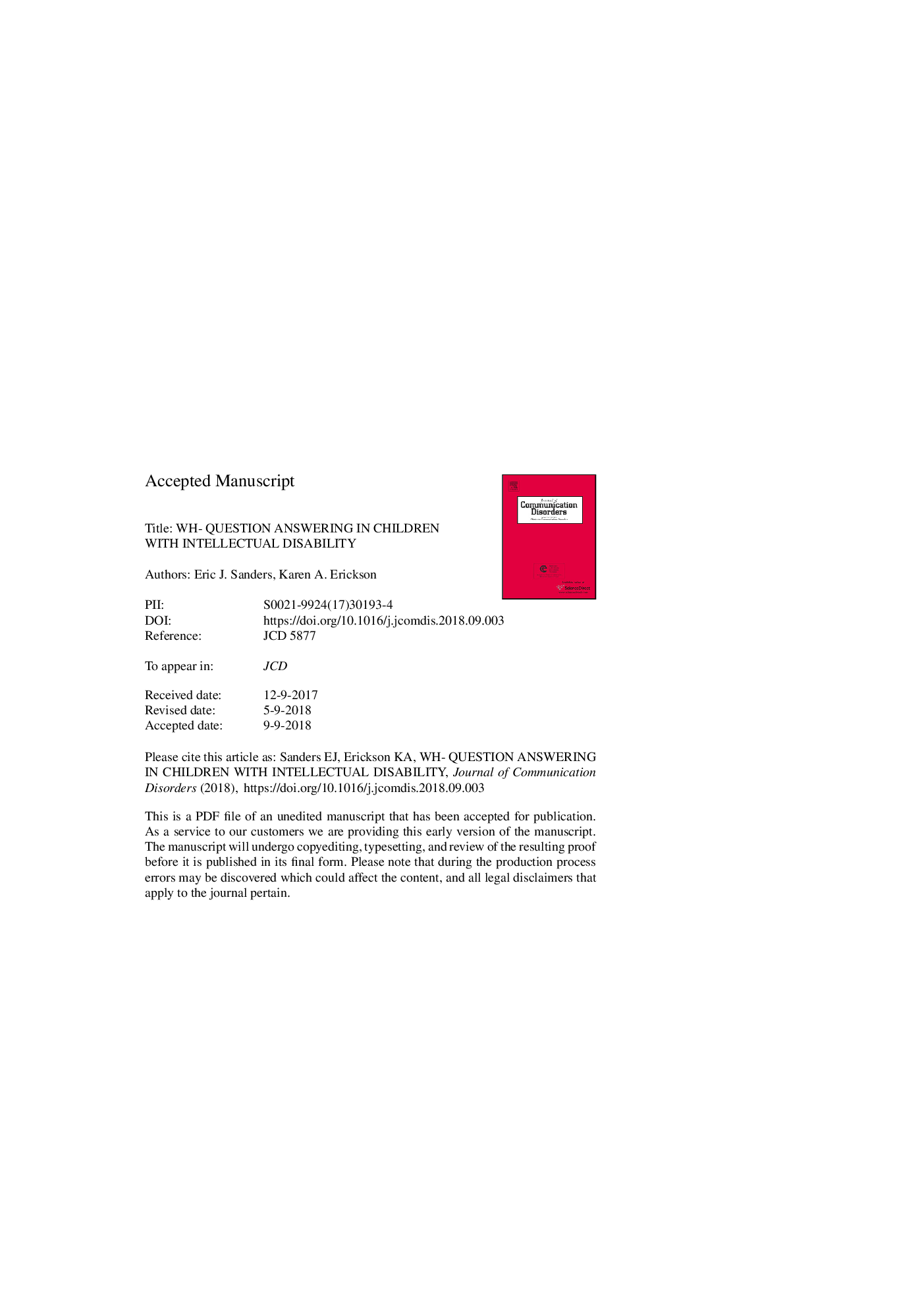| Article ID | Journal | Published Year | Pages | File Type |
|---|---|---|---|---|
| 11004488 | Journal of Communication Disorders | 2018 | 42 Pages |
Abstract
This study investigated the ability of students with intellectual disability (ID) (nâ=â39) to answer questions beginning with different wh- question words presented in two referential conditions (i.e., with and without a picture). It also investigated participants' ability to answer questions that were more concrete (i.e., who, what, where) or abstract (i.e., when, why, how). Across conditions, the rank ordering of correct responses for each question word was: what, who, where, how, why, when. Logistic regression analysis revealed no overall statistical significance between the probability of answering questions correctly across referential conditions. Participants answered 89% of concrete and 56% of abstract questions correctly across both referential conditions, and logistic regression analysis revealed a statistically significant difference between the probability of answering concrete and abstract questions. The results of this study point to the importance of learning more about ways to support students with ID with answering wh- questions.
Keywords
Related Topics
Life Sciences
Neuroscience
Cognitive Neuroscience
Authors
Eric J. Sanders, Karen A. Erickson,
